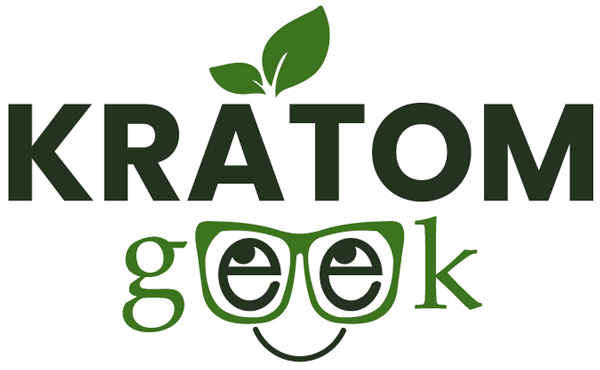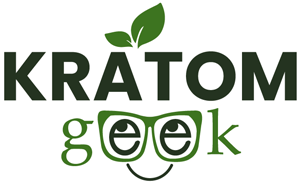Mitragyna speciosa, otherwise known as kratom, grows in Southeast Asia. American companies import the plant product from Indonesia. The same as numerous companies import coffee from over there, too. And coincidentally, both food and beverage products (coffee and kratom) are part of the same family of flowering plants called Rubiaceae. So lots of people drink both of those types of beverages in the morning for the energizing effects they produce. But the Food and Drug Administration (FDA) started a biased and unscientifically sound misinformation campaign against kratom a few years back. And the federal agency has been trying to ban it from our country ever since. In response many state legislators have sought to protect kratom, using the Kratom Consumer Protection Act (KCPA).
However, the FDA is an agency that belongs under the Health and Human Services (HHS). And even the HHS changed its stance on kratom since the FDA demanded that the Drug Enforcement Agency (DEA) make kratom an illegal substance. In August 2018, the HHS sent a letter to the DEA and rescinded the previous recommendation for scheduling the kratom plant, citing the agency needed scientific evidence to support the claim that kratom was dangerous for consumers. The HHS shifted its position after the advisors reviewed all of the old and new data available and decided that scheduling kratom with undeveloped scientific support would be a premature decision not founded with reason.
Still, that hasn’t stopped the FDA from badmouthing the plant. And the action came after six states in the US had already made laws to make kratom illegal within state borders.
Previous States that Passed a Kratom Consumer Protection Act
To combat the real threat of state legislatures implementing laws that place kratom on a scheduled list of drugs, the kratom community pushes for elected legislators to create just laws to protect our freedoms. The concept falls under a piece of legislation called the Kratom Consumer Protection Act (KCPA), which was introduced to federal representatives whenever the FDA tried to sway the DEA into making kratom illegal. But so far, the bill has yet to get the necessary vote in Congress to pass it. Still, kratom supporters continue to press the matter with elected leaders each year.
An impasse to passing a federal KCPA bill may have occurred, but the process for pushing it through state governments has proven a successful venture. In 2019, four different states created, voted, and passed a version of the KCPA for their citizens.
The very first government in the US to pass the KCPA was Utah in March 2019. The following month, we witnessed Georgia follow suit. And then Arizona also passed a version of the KCPA the same month. Only two months later, Nevada became the fourth state to implement a KCPA, providing kratom consumers with protection.
But ever since 2019, kratom supporters had witnessed a stalemate with getting additional states to do the right thing. However, the first half of 2021 changed that losing streak for the kratom community. Now, two more states created and passed their rendition of the KCPA.
Oklahoma Becomes Fifth State to Pass the Kratom Consumer Protection Act
In Oklahoma, kratom was already a legal substance to sell or purchase. However, there were no regulations set in place for the kratom companies in the state. So, two Oklahoma state representatives from the Republican Party took the initiative to introduce Oklahoma House Bill 1784 into the 2021 legislature session. Daniel Lee, a member of the Oklahoma House, and Lonnie Paxton, an Oklahoma state senator, were the two officials to introduce the bill.
Shortly after its introduction, the House voted on the bill around the middle of May 2021. And it passed with 91 representatives voting for it to get approved—and only one person voted against it. When the bill went on to the Senate, 36 state senators helped push it through. And the bill went to the governor for a signature. Then HB 1784 was approved and signed into law by Kevin Stitt last month at the tail end of May 2021. And made Oklahoma the fifth state in the nation to implement legislation for a KCPA.
The Oklahoma Kratom Consumer Protection Act creates a minimum age limit for purchase, consumption, and sale. Nobody under the age of 18 is legally allowed to possess the product. A kratom vendor caught selling to minors would receive a $500 fine for the first offense, $1000 for the second, and prohibited from selling any kratom products for three years on a third offense. The legislation also created requirements for testing, labeling, and marketing kratom products by businesses.
Oregon Becomes Sixth State to Pass the Kratom Consumer Protection Act
During the recent state legislative session, a bipartisan effort introduced Oregon House Bill 2646. Representatives Bill Post, John Lively, and David Brock Smith spearheaded the process. The bill sought to establish regulations for the kratom industry in Oregon, mandating universal testing standards across the sector. That would provide consumers with legitimate quality requirements. Other than that, the bill implemented labeling requirements for kratom companies to execute. And the legislation created an enforceable minimum age stipulation for the sale or purchase of kratom. A customer must be at least 21 years of age to purchase or consume the product. And anyone violating that law can receive a maximum of 30 days imprisonment, a $1250 fine, or both.
Just last week, on June 24th, 2021, the Oregon House voted and passed the KCPA with 49 representatives voting for it. Not one single Member of the House voted against the bill. Then two days later, on June 26th, 2021, the Senate took up the vote for the KCPA. The bill passed in the Senate with 26 senators voting for it, and only two politicians voted against the legislation. Now, the bill goes to the desk of Governor Kate Brown for her to sign it into law. Once that happens, Oregon becomes the 6th state in the US to make the KCPA a legal piece of legislation to protect kratom consumers.
Hopefully, more states shall perform the same feat.
The American Kratom Association Leads the Charge For State
Kratom Consumer Protection Acts
Two new states created versions of the KCPA in the first half of this year. That takes the total number of states that have come out in support of the plant to six. With the FDA ramping up for more war efforts against kratom, we need more state legislatures to stand against the tyranny of unauthorized federal agencies that overstep the boundaries set forth before them. So the kratom industry looks to garner support from elected leaders that support the constitutional rights of their constituents who voted them into power. However, it takes a lot of effort and labor to accomplish such a feat. And the kratom community depends on non-profit groups like the American Kratom Association (AKA) to achieve those goals.
The AKA takes up the task of lobbying efforts in the political arena on behalf of kratom consumers. But the ongoing actions are very costly. So it operates through the donations of kratom advocates who want to keep kratom legal in their states or overturn a ban. And it’s an ongoing battle of legality. Even if you live in a state with a KCPA bill, it doesn’t mean the struggle is over. Laws can easily get overturned by newly elected representatives. The pharmaceutical industry lobbies for their agendas, too. So kratom advocacy groups must continue the fight, even after obtaining legislative measures. And every penny you can spare can keep kratom legal.






